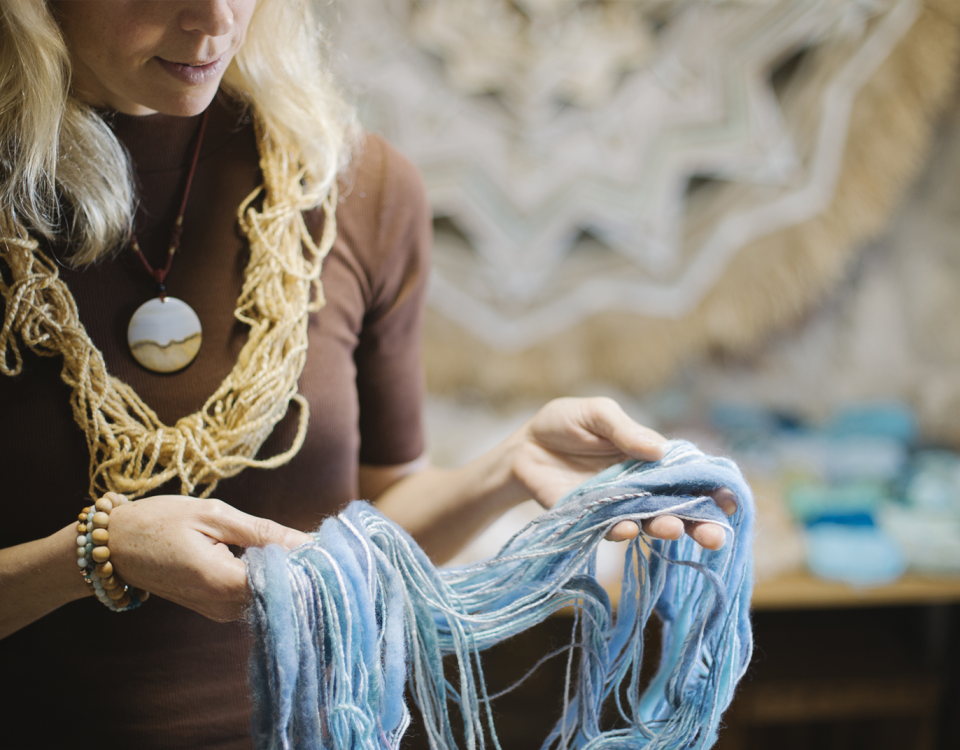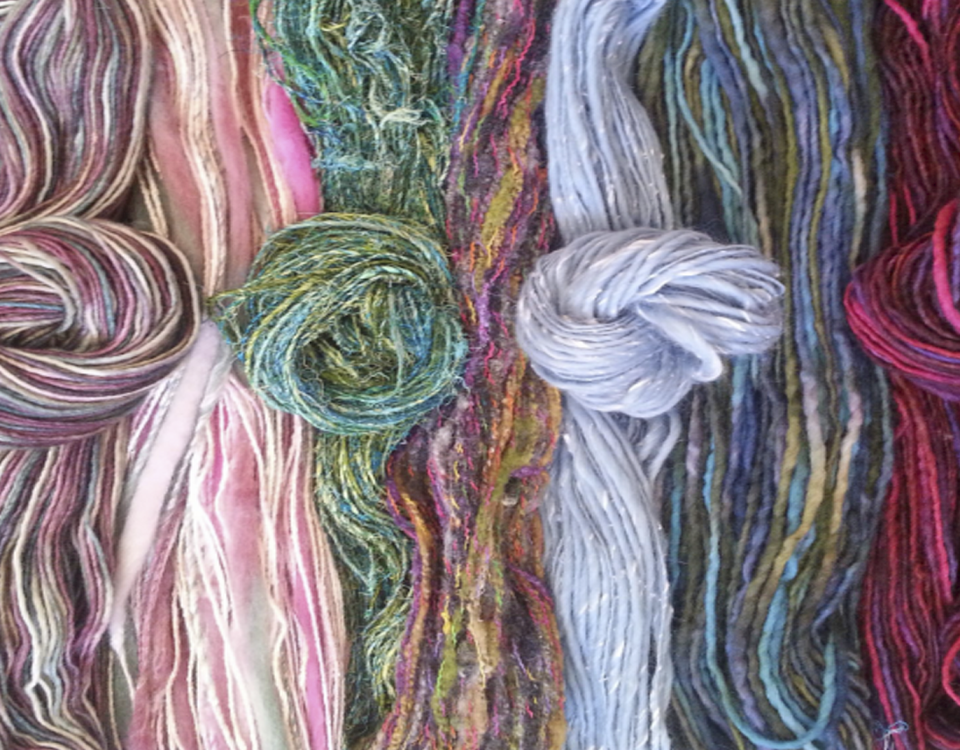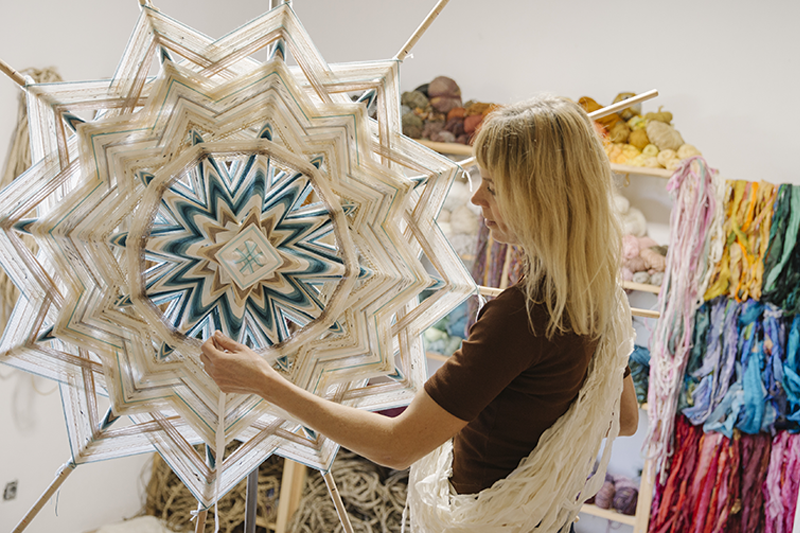- CLOE COLLETTE - Fiber Art
- + 34 632 77 85 34

Hand spun yarns from Mallorcan sheep
February 17, 2023WOOL IS OUR CULTURAL HERITAGE
Wool, once revered as the "Gold of the old times," has now sadly lost its value with great environmental, social and cultural consequences. How can such a valuable, renewable resource nowadays be burned on agricultural farms in Mallorca? The economical infrastructure to sell and reuse this high quality material is diminishing in a rapidly changing world. This issue strikes me deeply, and bringing this heartbreaking situation to light feels like a responsibility towards the earth and our future generations.
What are the social consequences of the diminishing value of wool?
People are starting to realize that we should bring back old-fashioned values and skills that are disappearing. Our traditional ways of doing things, especially in shepherding and the craftmanship involved in processing wool, are part of our rich culture and nature. It's important to keep the old craftsmanship alive, like the ancient skill of spinning and felting wool and turning it into useful things. This includes making yarn, creating clothes and household items, and using it for art and decorating homes. I completely agree with UNESCO when they define traditional crafts as: “the most tangible manifestation of intangible cultural heritage.”
These practises are disappearing rapidly and our generation has a fading number of individuals who possess certain skills, often being the last ones to hold that knowledge. Isn't that sad?
It's all about reclaiming the value of wool, which contributes to the cultural and natural heritage of the island.
How can we support the preservation and survival of Mallorca's native breed of sheep called 'Oveja Roja'?
The Mallorcan red wool, a local breed in danger of extinction, mirrors the condition of many Spanish breeds. Shepherding has become a challenging, dying profession, lacking financial support. Even though it is so important in environmental, social, and cultural aspects. Reclaiming the value of wool would have a direct positive outcome for shepherds. It would make it simpler for them to do what they live for: caring for animals and the land they walk on.
It really excites me to weave my artworks with wool which is sourced directly from the shepherds and spun by hand into yarn which carries the story of the island.
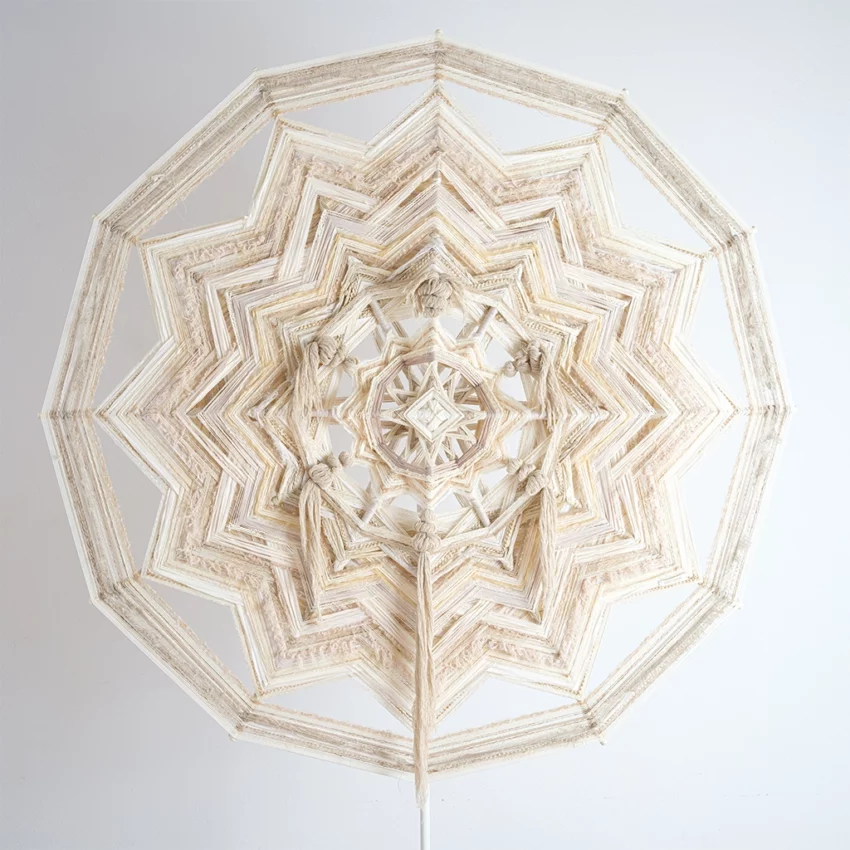
'The road less travelled' , 150 x 150 x 20 cm. Hand woven with Mallorca's hand spun wool, merino wool, recycled fibers and many more. This artwork is a hommage to the shepherds journey, the challenges they face and the beauty of Mallorcan wool.
Hand woven by Cloe Collette.
What are the environmental and economical consequences of the diminishing value of wool, particularly in Mallorca?
Choosing wool over synthetic fibers contributes to sustainability and a circular economy. The use of wool reduces our use of precious raw materials and cutting CO2 emissions. Wool, as a biodegradable, renewable, compostable resource, enriches the soil. Moreover, the eco-friendly method of handling wool is a stark difference from the environmentally harmful production of synthetic fibers.
Shepherding plays a big role in keeping Mallorca's nature healthy. Grazing sheep help in generating biodiversity, sustain pastures, and preserve difficult to reach mountain areas against overgrowth. They also play a vital role in reducing fire risks, among other benefits.
Economically, relying on factories and large companies for our yarn, textiles, furniture, home decorations, and all things related to wool means we lose control over our income and well-being. However, if we can obtain the raw material, process it locally, and sell it within our community, we gain freedom to shape our own economy.
Why is it important that we support and protect Mallorca's shepherding tradition in today's rapidly changing society?
Our cultural and natural heritage and traditional values and skills are being lost in this digital era. Shepherding builds strong bonds among people and keeps our cultural identity alive. It preserves a history that goes back 6,000 years, holding precious knowledge about the natural world on the island. In today's fast-paced world, dominated by digital technology, skills and values that have been important for thousands of years are in danger of disappearing. I see it as our responsibility to reclaim and pass on these vital aspects of humanity to future generations.
Author: Cloe Collette, artist on Mallorca weaving intricate fiber art from Mallorca's hand-spun wool.
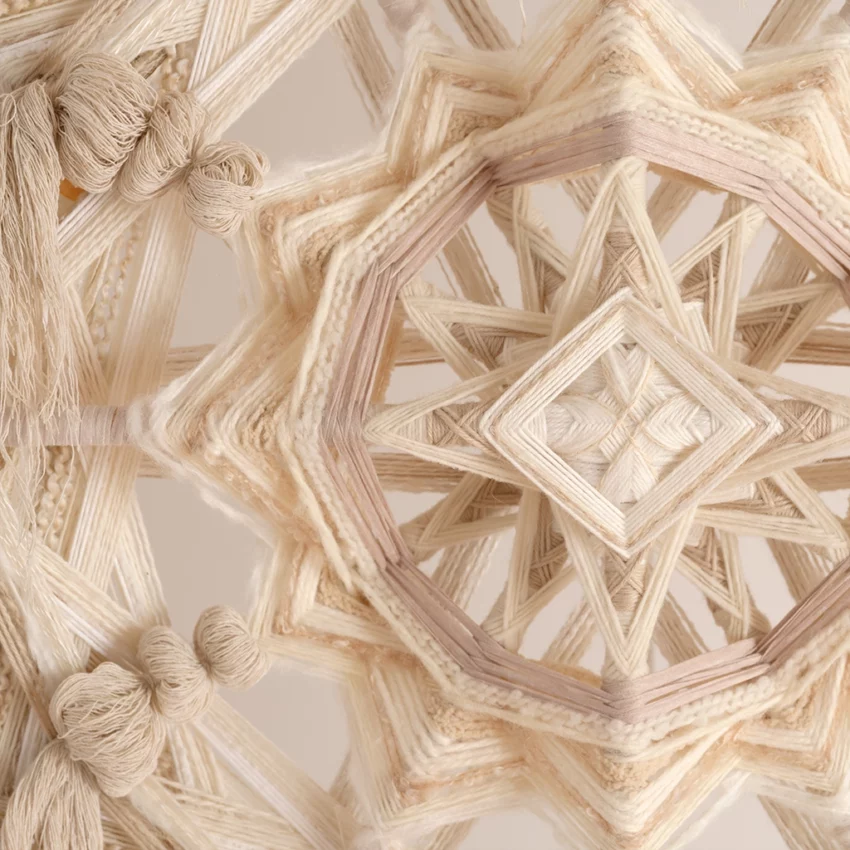
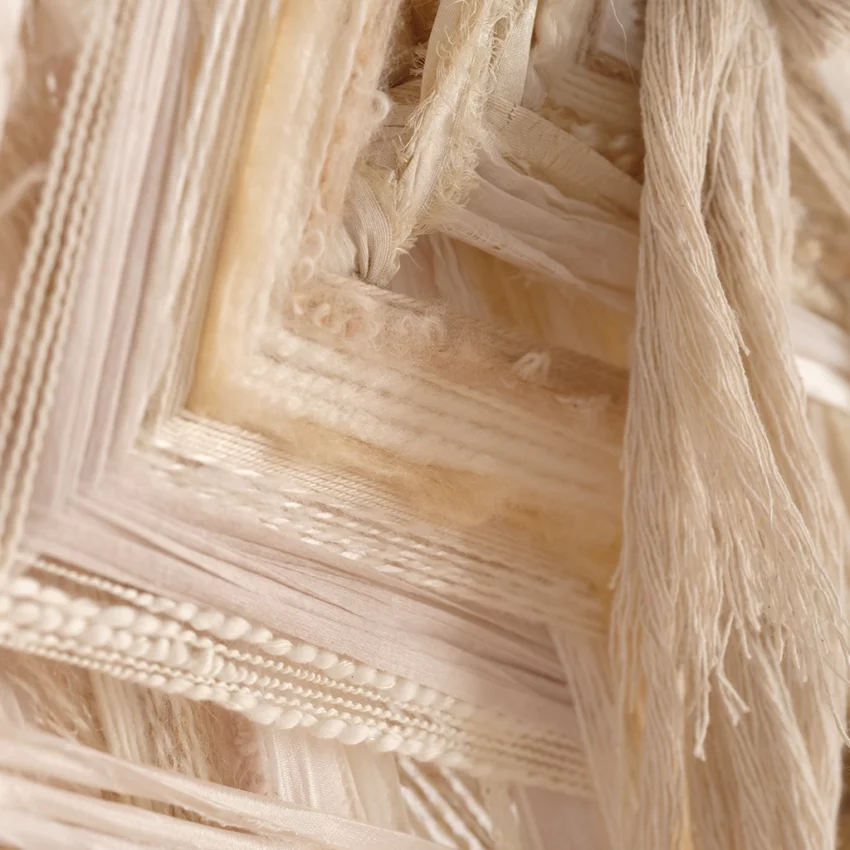
Explore how fiber artist Cloe Collette elevates Mallorca’s heritage in crisis through her art, celebrating the value of wool and the island’s traditional lifestyle.


